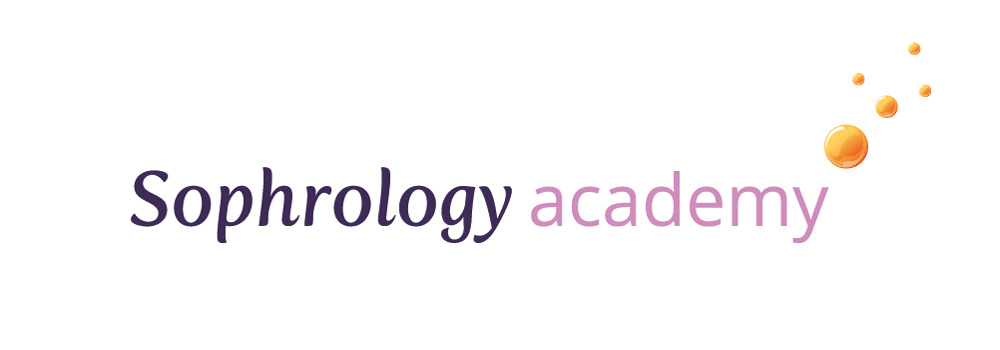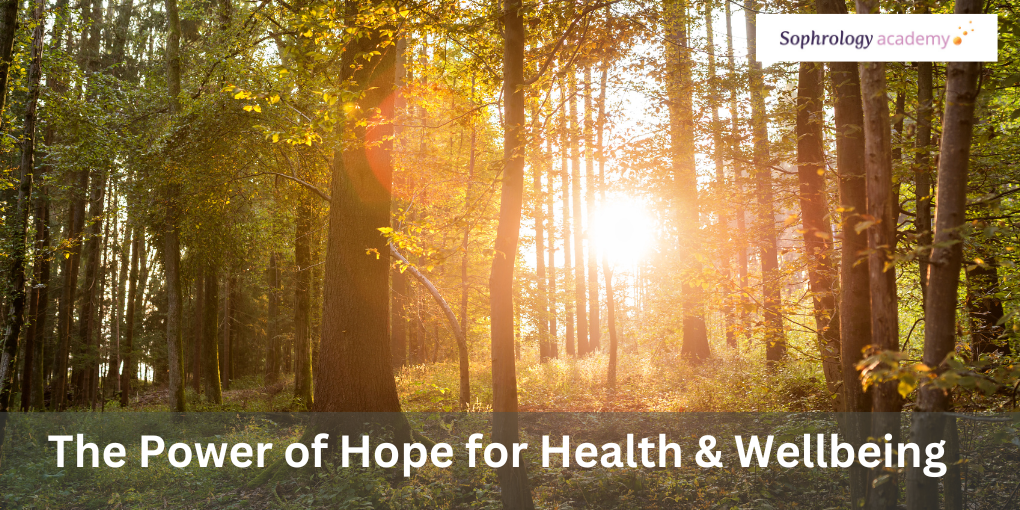In a world which can seem increasingly bombarded by negativity and uncertainty, hope feels more important than ever.
But it’s not just wishful thinking; hope is emerging as one of the most important predictors of wellbeing, increasing coping skills and resilience in the face of challenge. When uncertainty prevails and setbacks occur, hope protects us from damaging effects of stress and helps us to persevere with the goals we care about.
In her book, The Power of Hope, Carol Graham discusses how hope alters the way we view our own happiness and life satisfaction and, crucially, how it can enable us to retain a sense of purpose and direction in difficult times.
What is Hope?
Leading organisations, in particular, are recognising the significance of hope as a critical part of our wellbeing. In fact, The Office for National Statistics in the UK has now included ‘hope for the future’ as a measure in the revised UK Measures of National Wellbeing framework. Within this framework, they are seeking to clarify what we mean by hope and why it matters.A recent article by What Works Centre for Wellbeing, which draws from the ONS report, offers an insightful definition:
“Hope – a disposition or tendency to fix one’s attention on the possibility of the desired good in the future, characteristically in the face of difficulty. It is characterised by positive feelings about the future; it is trusting one’s ability and motivation to goal-set and find multiple ways to get there; it is having the will and agency to live.”
Importantly, hope is not the same as optimism – much as the two are often conflated. In contrast to hope, optimism is a disposition or tendency to have expectations that the future will be good. You will likely know someone whom you regularly dub ‘the eternal optimist’ – and possibly even admire their sunny disposition.
However, while a positive outlook is healthy, unbridled optimism can actually cloud judgement and lead to poor decision-making. Read more in this insightful article by the University of Bath.
Hope employs confident action towards our goals, bringing a sense of pragmatism which tempers mere expectations of a desired outcome.
The Primacy of Hope in Sophrology
Viktor Frankl is known as one of the key contributors to our understanding of the need for hope in choosing life and overcoming the most challenging circumstances. Through discussions spanning many years, Alfonso Caycedo, a Spanish neuropsychiatrist who developed the concept of Sophrology, drew extensively on Frankl’s ideas in developing the Sophrology method.
As a result, we see Frankl’s influence deeply embedded in the practice of Sophrology, and in fact, hope is named as one of three universal capacities that we can all activate, along with confidence and harmony. Those who practice Sophrology will know that these three capacities are often affirmed at the end of a Sophrology practice in a state of deep relaxation as a form of autosuggestion – a powerful tool for personal change, to which we all have access.
So, how exactly does Sophrology help to activate and strengthen hope? Three key components of the Sophrology Method, positive action, attention training and developing autonomy, are particularly relevant. We can take each part of the definition of hope given above, to show how Sophrology can help to nurture a healthier, more confident mindset and embed it into our daily lives.
Positive Feelings:
‘Positive Action’ is one of Sophrology’s three main principles—and one that sets it apart from many other therapeutic methods. In essence, we don’t focus on the problem or what’s not working well. Now, this doesn’t mean we forget about them; we acknowledge these problems and accept the reality of their existence, but we give our attention and energy to what is positive and strong, growing their presence in our awareness.
For example, we might ask: What makes me feel good? What brings me joy? And we use what we find. The impact of this approach goes far beyond the walls of our personal being; when we generate a feeling of positive possibility inside ourselves, it feeds into our interactions with others and, as a result, we find the world more likely to respond in the same way.
In Sophrology, there are many ways to do this, and those who practise the method discover and use what works specifically for them. Some may find breathing exercises most effective; others, body posture or creative visualisation techniques – whatever helps to generate positive feelings during difficult times.
In short, any positive action directed at one part of our consciousness affects our entire being in a positive way. This means we can use muscle relaxation or specific breathing patterns (the body) or use attentional focus or creative mental imagery (the mind) for positively impacting how we think, feel and perform.
Fixing one’s Attention on the Possibility of the Desired Good:
From the very start, Sophrology techniques help to develop our capacity of concentration – the ability to hold our attention steady in a single place. With practice, we begin to take charge of the ‘monkey mind’ and its distractions or ruminations. We are able to be more present and alert to what’s happening in each moment.
With some mastery of our attention in the present, we can start to look ahead to the future. We train our minds to develop a positive orientation towards the future. We ask ourselves ‘what am I looking forward to? What’s going to happen that I know I will enjoy?’ It can be something small in the very near future, like a hug from a child, the feel of getting into a cosy bed at the end of the day, or a bigger event further out, like a fun outing or a planned holiday. Little by little we increase attention and energy towards anticipating more good stuff coming up, positively charging our view of future possibilities.
Trusting One’s Ability and Developing Agency:
Through repetition, it becomes easier to generate a positive shift when we need to. We increasingly master the mind-body connection, so that we can use it consciously to serve our life process and desired future. Whilst we can’t always control events ‘out there’, we can take charge of how we experience them – what’s happening ‘in here’. This is the autonomy we’re building: no longer overly dependent on external happenings for our wellbeing, we have the freedom to choose our experience in any situation, to ride life’s ups and downs.
Think of an uncertain time in your life when you were able to consciously gain focus and control. How did you feel? Confident? Calm? Less affected by external variables happening around you? This is what happens when we are able to make a positive shift, and from this vantage point, we can find it easier to overcome challenges, experiencing a greater sense of agency.
Sophrology practitioners understand how critical a sense of agency is to our overall wellbeing. Thus, by encouraging their clients to explore what works for them, and to adapt techniques to suit their own needs, clients also gain autonomy in their practice, and are better able to integrate and employ these techniques by themselves when needed.
Finding Hope in Hope-lessness
There are several factors which can make it very difficult for us to find hope, one of the most pervading being depression. Here, it’s not only negative beliefs that are a problem – but also the
inability to abandon these negative beliefs that can leave someone who is depressed without a sense of hope for the future.
Whilst we all harbour negative beliefs at times, we are usually able to challenge or ‘update’ these beliefs when evidence convinces us to the contrary. For example, you may believe that you ‘can’t do’ something – until you surprise yourself by doing it! People with depression, however, often stick to negative beliefs despite having positive, disconfirming experiences.
An article in Psyche, written by senior researcher and lecturer in psychology at the University of Kaiserslautern-Landau, Germany, discusses these ‘sticky beliefs’. Kube suggests here, that people with depression have particular difficulty updating negative expectations about their performance. One of the reasons for this has to do with the feelings of sadness that go along with depression, which turn out to get in the way of revising beliefs. In other words, when they are sad, people are less likely to use new information to adjust their negative beliefs.
Decades ago, Caycedo’s work with mental health patients yielded a powerful insight that also profoundly influenced his work: those who focused on positive aspects of their past recovered more quickly than those who spent more time revisiting painful memories.
Kube’s work reaches a similar conclusion: from a therapeutic perspective, alleviating acute sadness is crucial for helping individuals to integrate novel positive information into their beliefs. Lifting mood, by for example, revisiting a happy personal memory before receiving the new information will increase the likelihood of revising negative beliefs.
This is where Sophrology can help—as a structured yet flexible method within which we can work and grow. Using mindfulness, meditation, and dynamic relaxation techniques, Sophrology enables us to nurture a more positive mindset, tackle stubborn negative beliefs, and foster a sense of hope for the future.
Hope as a Journey …
In a rarely captured seminar from 1972, Frankl relays his thoughts – through a quote by Goethe – on how the betterment of humankind lies in a more hopeful anticipation of its potential:
‘When we take man as he is, we make him worse.
But if we take man as he should be, we make him capable of becoming what he can be’.
Regardless of our background or situation, the quest to find hope in an uncertain world starts with our own personal journey. If we can find hope in ourselves, we can find it in each other, and in so doing, find hope in the world around us. And that, Frankl and Caycedo would agree, is a far better place from which to create lasting positive change for us all.
Interested in learning more about Sophrology? The Sophrology Academy offers a comprehensive range of workshops and training programmes, guiding you from exploration to becoming a qualified professional Sophrologist. Discover how Sophrology can enhance your well-being, or take the first step towards a rewarding new career. Find out more about our courses, or get in touch.


